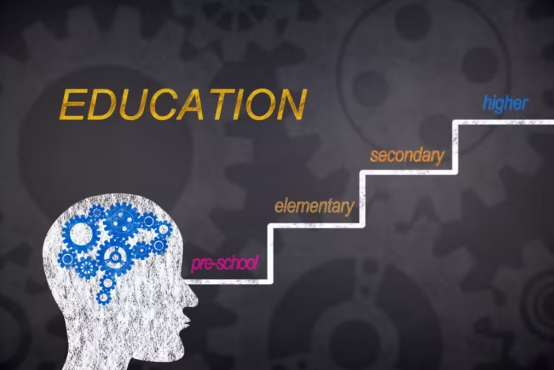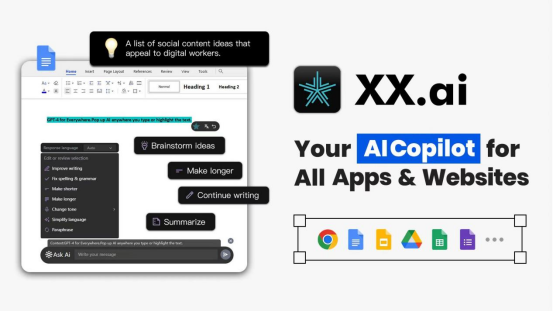Erkundung der Grenze der Künstlichen Intelligenz im Hochschulwesen: Transformation von Lernen und Verwaltung

Künstliche Intelligenz (KI) integriert sich in einem beispiellosen Tempo in unser tägliches Leben. Von intelligenten Haushaltsgeräten bis hin zu autonomem Fahren transformiert KI viele Bereiche. Daher ist das Verständnis und die Anwendung von KI-Technologie nicht nur eine Fertigkeit in der modernen Gesellschaft, sondern bringt auch neue Möglichkeiten zur Reform des Bildungssystems. Im Bereich der Hochschulbildung ist das Potenzial der KI immens, da innovative Methoden und Werkzeuge für Studierende, Lehrende und Administratoren bereitgestellt werden, um Lehr- und Lernerfahrungen zu verbessern und die Verwaltungseffizienz zu steigern.

Was ist Künstliche Intelligenz im Hochschulwesen?
Das Erkunden der Grenze der Künstlichen Intelligenz im Hochschulwesen umfasst die Anwendung von KI-Technologien auf verschiedene Aspekte der Hochschulbildung, um die Lehrwirksamkeit, das Forschungsniveau, die Verwaltungseffizienz und die Studentenerfahrung zu verbessern. Dies kann KI-Tutoriensysteme, Managementroboter, die Operationen vereinfachen, und komplexe Datenanalysetools umfassen, die die akademische Forschung vorantreiben.

Warum brauchen wir Künstliche Intelligenz in der Bildung?
In der heutigen, sich schnell entwickelnden technologischen Ära ist die Künstliche Intelligenz (KI) zu einem Haupttreiber für Innovation und Wirtschaftswachstum geworden. Die Gründe, warum wir KI-Bildung benötigen, sind zweifach: Sie erfüllt nicht nur die dringende Nachfrage nach High-Tech-Fähigkeiten auf dem modernen Arbeitsmarkt, sondern ermöglicht es uns auch, global einen Wettbewerbsvorteil zu gewinnen. KI-Bildung kann helfen, eine Generation von Talenten zu entwickeln, die in der Lage sind, KI-Technologien zur Lösung komplexer Probleme einzusetzen und damit globale Herausforderungen wie den Klimawandel, die Gesundheitsversorgung und das Ressourcenmanagement anzugehen. Zusätzlich kann KI-Bildung die technologische Allgemeinbildung der Gesellschaft verbessern und sicherstellen, dass bei der Verbreitung der Technologie keine signifikante digitale Kluft entsteht. Ferner müssen ethische und rechtliche Fragen, die durch KI aufgeworfen werden, durch systematische Bildung geregelt werden, um die Sicherheit und nachhaltige Entwicklung der Technologie zu gewährleisten. Daher ist KI-Bildung nicht nur eine akademische Aufgabe, sondern ein Schlüssel für sozialen Fortschritt und das Erreichen einer nachhaltigen Zukunft.
Vorteile der Künstlichen Intelligenz im Hochschulwesen
Personalisierte Lernerfahrungen
- Individualisierte Lehrinhalte: KI analysiert die Lerngewohnheiten und den Fortschritt der Studierenden, um personalisierte Lernressourcen und Wege zu empfehlen, die den individuellen Bedürfnissen der Studierenden entsprechen.
- Echtzeit-Feedback und Anpassung: Durch intelligente Lehrsysteme können Lehrende und Lernende zeitnah Feedback zu Lerndaten erhalten, sodass Lehrstrategien und Lernmethoden schnell angepasst werden können.
Verbesserung der Lehrqualität und Effizienz
- Automatisierte Aufgaben: XXAI nutzt die natürlichen Sprachverarbeitungsfähigkeiten von GPT-4, um Aufgaben und Prüfungen automatisch zu bewerten, wodurch die Arbeitsbelastung der Lehrenden erheblich reduziert und gleichzeitig Fairness und Konsistenz in der Bewertung gewährleistet werden. Lehrende können detaillierte Bewertungsberichte und Feedback durch XXAI generieren, um Studierenden zu helfen, Fehler zu verstehen und sich zu verbessern.
- Erhöhte Interaktivität: Die Modelle GPT-4 und Claude 3 in XXAI können als intelligente Assistenten oder virtuelle Lehrer fungieren und rund um die Uhr Unterstützung sowie Q&A-Dienste bieten. Studierende können jederzeit während ihres Lernprozesses Fragen an XXAI stellen und rechtzeitige, genaue Antworten erhalten. Zusätzlich kann XXAI personalisierte Lernvorschläge und Ressourcenempfehlungen bieten und so die fragmentierte Zeit der Studierenden optimal nutzen.
- Echtzeit-Generierung und Visualisierung von Inhalten: Mit dem DALL-E 3 Modell kann XXAI qualitativ hochwertige Bilder, Diagramme und andere visuelle Materialien in Echtzeit basierend auf den Lehrinhalten erzeugen, was besonders hilfreich ist, um komplexe Konzepte zu verstehen.

Datengetriebene Entscheidungsfindung
- Bildungs-Big-Data-Analyse: Durch die Analyse von Lern- und Verhaltensdaten können Bildungseinrichtungen Lehrpläne und Strategien wissenschaftlicher gestalten.
- Prädiktive Analytik: KI kann die akademische Leistung, Prüfungsergebnisse und Abschlusswahrscheinlichkeiten von Studierenden vorhersagen, um potenzielle Probleme rechtzeitig zu erkennen und zu beheben.
Forschungsunterstützung
- Literatur- und Datenverarbeitung: KI kann effizient große Mengen an Forschungsliteratur abrufen und organisieren und automatisch wertvolle Informationen und Daten extrahieren, wodurch die Forschungseffizienz verbessert wird.
- Experiment-Simulationen: KI kann komplexe Experiment-Simulationen und Datenanalysen durchführen und somit Forschende bei der wissenschaftlichen Erkundung und Innovation unterstützen.
Karriereplanung und Berufsberatung
- Personalisierte Karriereberatung: Durch die Analyse der Interessen, Fähigkeiten und Marktnachfrage der Studierenden kann KI maßgeschneiderte Karriereplanung und Berufsberatung bieten.
- Job-Matching: KI kann Studierende effizient mit Jobmöglichkeiten zusammenbringen und so die Erfolgsquoten bei der Beschäftigung erhöhen.
Innovative Lehrmodelle
- Online-Bildung und Blended Learning: KI-Technologie macht Online-Bildungsplattformen intelligenter und unterstützt verschiedene Modelle des Blended Learning, wodurch die Lernergebnisse verbessert werden.
- Virtuelle Labore und Simulationskurse: Technologien wie virtuelle Realität (VR) und erweiterte Realität (AR) in Kombination mit KI bieten immersive experimentelle und Lernerfahrungen.
Herausforderungen der Künstlichen Intelligenz im Hochschulwesen
Trotz der zahlreichen Vorteile von KI im Hochschulwesen, steht ihre Entwicklung noch vor mehreren Herausforderungen.
Datenschutz und Datensicherheit
- Datenschutzprobleme: KI-Systeme erfordern die Sammlung und Verarbeitung großer Mengen von Studierendendaten, was ein Risiko für Datenschutzverletzungen darstellen kann.
- Datensicherheitsrisiken: Es ist notwendig, sicherzustellen, dass Studierenden- und Lehrendendaten nicht während der Übertragung und Speicherung übermäßig exponiert werden, um Missbrauch oder Hacking zu verhindern.
Technische Kompetenz und Anpassungsfähigkeit
- Technische Kompetenz von Lehrenden und Studierenden: Nicht alle Lehrenden und Studierenden sind mit der Nutzung von KI-Technologien vertraut, wodurch umfassende Schulungen zur Steigerung ihrer technischen Anwendungskompetenzen erforderlich sind.
- Technische Unterstützung: Kontinuierliche technische Unterstützung und Wartung sind entscheidend für den stabilen Betrieb von KI-Systemen, was zusätzlichen Ressourcenaufwand erfordert.
Kosten und Ressourceneinsatz
- Finanzielle Investition: Die Entwicklung, der Einsatz und die Wartung von KI-Systemen erfordert erhebliche finanzielle Mittel, was für einige Bildungseinrichtungen, insbesondere solche mit begrenztem Budget, eine große Herausforderung darstellt.
- Kontinuierliche Verbesserung und Aktualisierung: Der rasche technologische Fortschritt bedeutet, dass KI-Systeme ständige Aktualisierungen und Verbesserungen benötigen, was einen langfristigen Ressourceneinsatz erfordert.
Ethik und Verantwortung
- Ethische Probleme: Es stellt sich die Frage, wie ethische Standards in KI-Systeme eingebettet werden können, um sicherzustellen, dass ihre Nutzung den moralischen Normen entspricht und voreingenommenes oder diskriminierendes Verhalten vermieden wird.
- Verantwortungszuweisung: Klare Mechanismen der Verantwortung und Verwaltung sind notwendig, um festzulegen, wer verantwortlich ist, wenn KI-Systeme Fehler machen (zum Beispiel Bewertungsfehler oder die Erzeugung irreführender Informationen).
Bildungsressourcen-Ungleichheit
- Ungleiche Ressourcenverteilung: Die verfügbaren technologischen Ressourcen und die finanzielle Unterstützung der Hochschulinstitutionen variieren, was zu erheblichen Ungleichheiten in der Anwendung von KI führen kann und die Bildungsungleichheit verschärfen kann.
Die Zukunft der Künstlichen Intelligenz im Hochschulwesen
Die Anwendung von Künstlicher Intelligenz (KI) im Hochschulwesen hat bereits ein enormes Potenzial gezeigt, und ihr Einfluss wird in Zukunft noch tiefgreifender sein.
Intelligente Klassenzimmer
Die Klassenzimmer der Zukunft werden vollständig intelligent sein. KI kann in Echtzeit den Lernzustand der Studierenden überwachen und Rückmeldungen geben, was den Lehrenden hilft, die Lehrmethoden zu verbessern und die Lernergebnisse zu steigern.
Prädiktive Analytik
KI kann das Verhalten und die Leistung der Studierenden analysieren, potenzielle Probleme frühzeitig erkennen und eingreifen, um den Studierenden zu besseren akademischen Ergebnissen zu verhelfen.
Globales Lernen
KI-Plattformen werden geografische Barrieren überwinden, Studierende und Lehrende weltweit verbinden und eine globalisierte Lernumgebung sowie Kooperationsmöglichkeiten bieten.
Curriculum-Entwicklung
KI kann Branchentrends und Arbeitsmarktnachfragen analysieren und den Schulen helfen, Lehrpläne zu entwerfen und zu aktualisieren, um sicherzustellen, dass das Wissen und die Fähigkeiten der Studierenden marktrelevant bleiben.
Häufig gestellte Fragen
Was ist Künstliche Intelligenz in der Bildung?
Künstliche Intelligenz in der Bildung umfasst die Nutzung von KI-Technologien zur Verbesserung von Lehr-, Lern- und Verwaltungsprozessen.
Wie erreicht Künstliche Intelligenz personalisiertes Lernen?
Künstliche Intelligenz erreicht personalisiertes Lernen, indem sie sich an die Bedürfnisse jedes Studierenden anpasst und maßgeschneiderte Unterstützung und Ressourcen bietet.
Welche Herausforderungen gibt es bei der Implementierung von KI im Hochschulwesen?
Herausforderungen umfassen Datenschutzprobleme, hohe Kosten, ethische Überlegungen und Widerstand gegen Veränderungen.
Fazit
Zusammenfassend lässt sich sagen, dass das Erkunden der Grenzen der Künstlichen Intelligenz im Hochschulwesen eine Reise voller Herausforderungen und Chancen ist. Während wir Herausforderungen wie Datenschutz, Sicherheitsprobleme und Implementierungskosten überwinden, können wir das volle Potenzial der KI nutzen, um den Studierenden eine personalisiertere, effizientere und integrative Bildung zu bieten. Da die Technologie weiter fortschreitet, wird KI eine zunehmend wichtigere Rolle im Hochschulwesen spielen und tiefgreifende Auswirkungen auf den Bildungssektor für die gesamte Menschheit haben. Lasst uns diese Transformation annehmen und gemeinsam eine strahlende Zukunft für die Bildung schaffen.